Spelling practice Normal Alphabet Worksheets for Ages 3-4
7 filtered results
-
From - To
Discover our engaging "Spelling Practice Normal Alphabet Worksheets" designed specifically for children ages 3-4. These worksheets provide a fun and supportive way for young learners to enhance their spelling skills, laying a strong foundation for lifelong literacy. Featuring vibrant illustrations and interactive activities, your little ones will explore the alphabet while reinforcing essential phonics knowledge. Each worksheet is crafted to foster concentration and creativity, making learning enjoyable. Perfect for home or classroom use, our resources inspire confidence and motivation in early learners. Give your child the tools they need to succeed in spelling with our comprehensive and accessible worksheets!


Rhyming Words: Assessment Worksheet
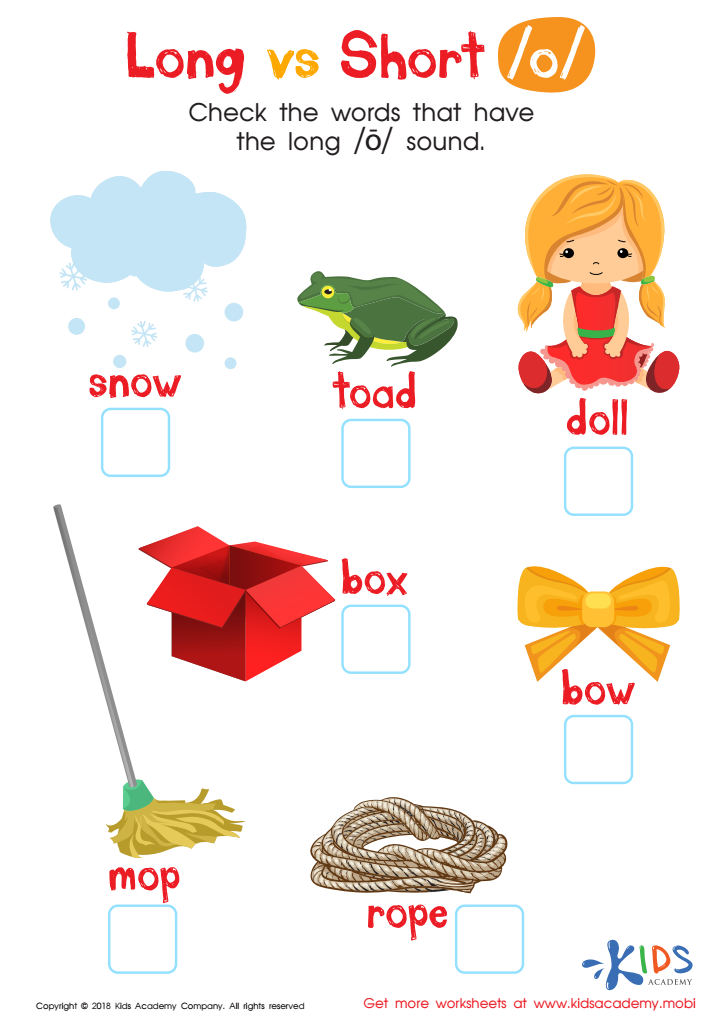

Long vs Short O Reading Worksheet
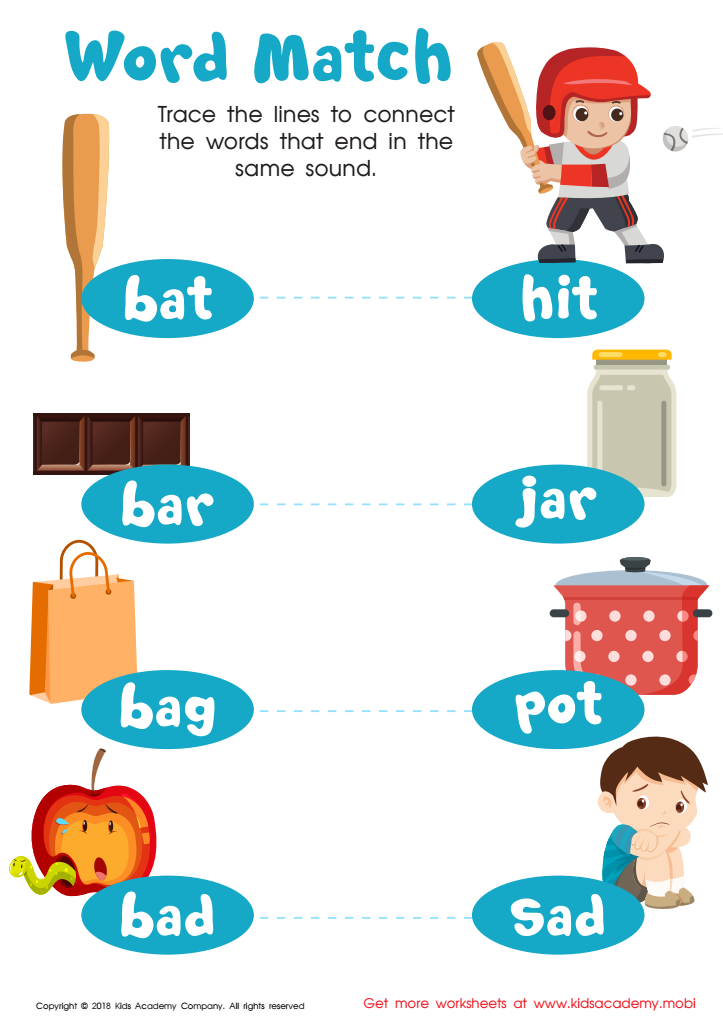

Word Match Reading Worksheet
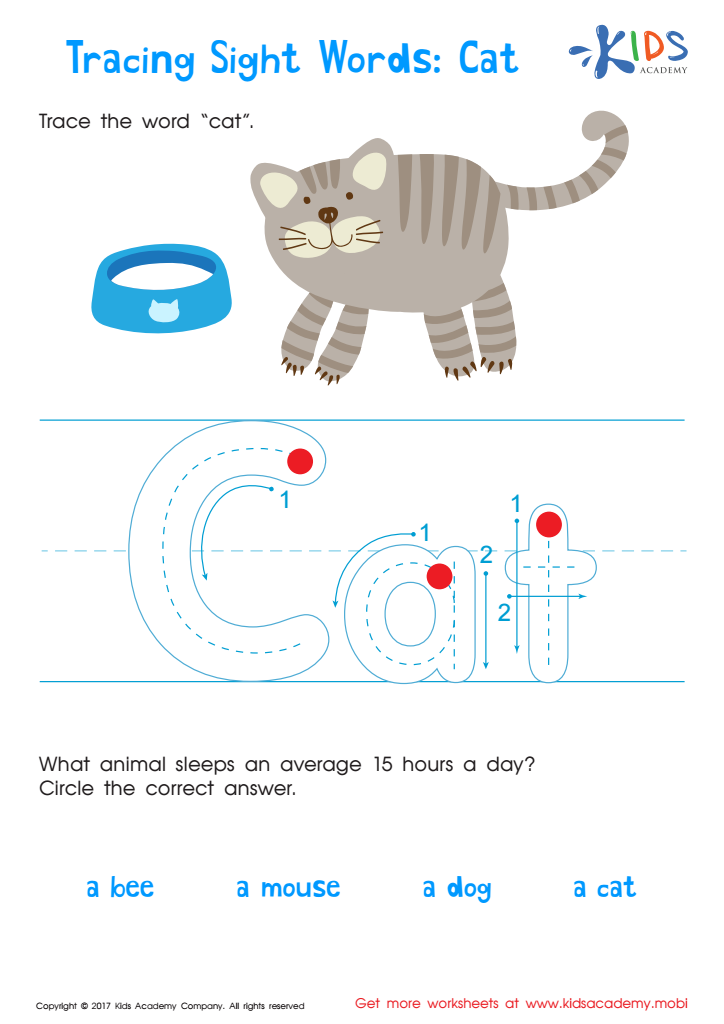

Cat Printable Sight Words Worksheet
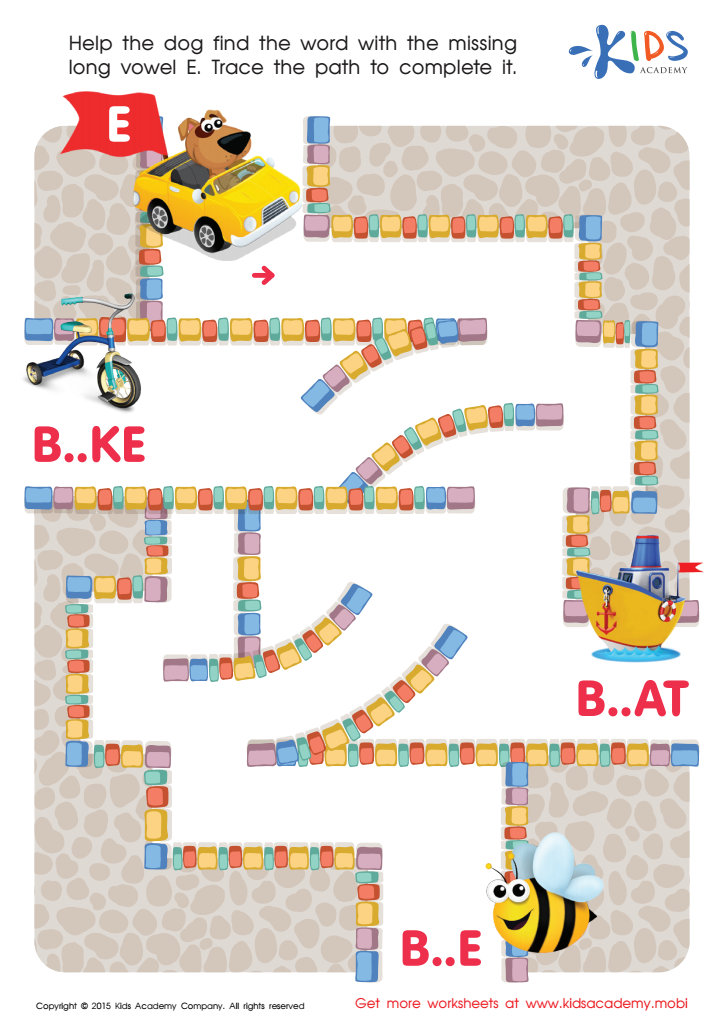

Long Vowel Sound E Worksheet
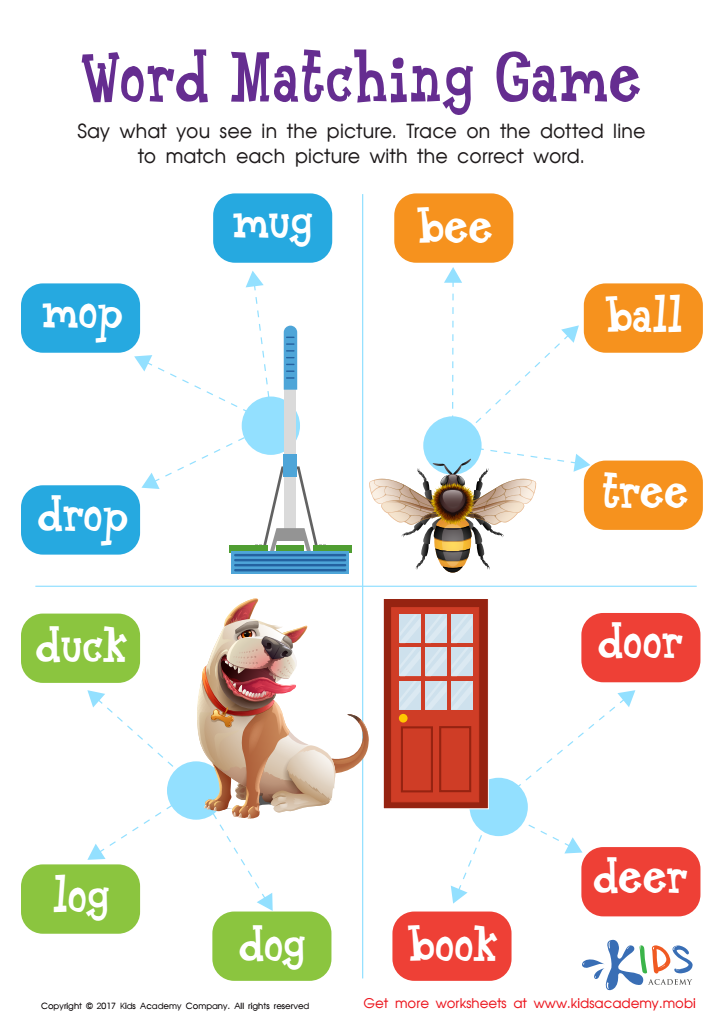

Word Matching Game Worksheet


Phonics and Word Recognition: Assessment 1 ELA Worksheet
Parents and teachers should prioritize spelling practice with the normal alphabet for children aged 3-4 because early literacy skills form the foundation for future academic success. At this age, children are naturally curious about letters and words, making it an ideal time to introduce them to spelling in a fun and engaging way.
Spelling practice enhances children’s phonemic awareness – the ability to recognize and manipulate sounds in words. This skill is crucial for both reading and writing. By learning to spell simple words, children develop fine motor skills as they engage in writing tasks. Additionally, practicing the normal alphabet promotes language development, expanding vocabulary and fostering effective communication.
Early exposure to spelling helps demystify language, allowing children to understand the connection between sounds and written letters. Engaging activities such as singing alphabet songs, playing with letter blocks, or participating in interactive games can make learning enjoyable and reinforce classroom or home learning.
Moreover, positive early experiences with spelling can bolster a child's confidence in learning. This confidence promotes a positive attitude towards academics, beneficial for lifelong learning. Therefore, incorporating spelling practice into daily routines can provide young children with essential skills for a bright educational future.
 Assign to My Students
Assign to My Students













